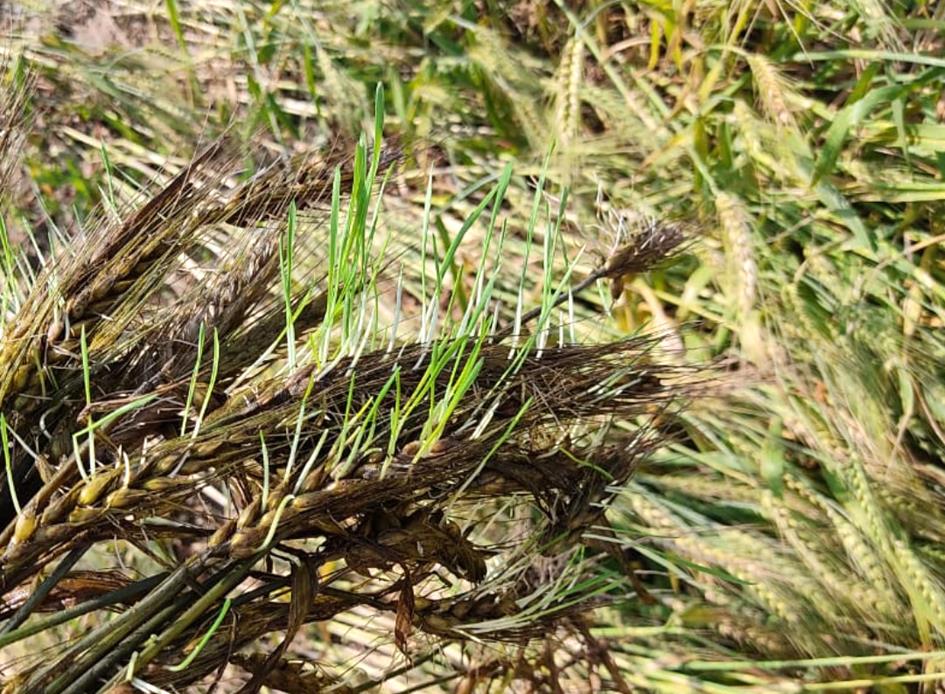Rains in Punjab close to harvest result in germination of wheat kernels

After another spell of rain that lashed Moga and its adjoining districts during the past 24 hours, farmers in many villages have reported germination of wheat kernels in ears of crops that had flattened on the ground. This has raised the fears of damage to grain quality just before harvesting.
Agriculture experts have termed it ‘viviparous germination’, which involves seeds germinating prematurely while these are still inside or attached to the parent plant or fruit.
The primary cause of pre-harvest germination is the breakdown or lack of seed dormancy under humid and wet conditions.
This is the third spell of the rain caused by western disturbance in the heartland of the Malwa belt during the past couple of weeks, which came at the most vulnerable ripening stage of the wheat and mustard crops that would be ready for harvesting soon.
In a statement, Buta Singh, Balwant Singh, Gurpreet Singh, Kuldeep Singh and other farmers of Patto Hira Singh village of the Nihalsinghwala subdivision said: “At this stage, the wheat crop needs sunshine and warmth to ripen and improve quality. Unfortunately, the vagaries of nature have wreaked havoc on wheat, which is the main cash crop of farmers.”
“The farmers are nervous about the grain quality, which has been hit by continuous wet conditions at the ripening stage,” said Dr Manjit Singh, Chief Agriculture Officer, Moga.
He said lodging of wheat in fields would hardly give any yield as per surveys.
“We do not know the extent of the damage. Several farmers whose wheat crop has flattened in fields have reported losses, with fear of viviparous germination looming large,” said Dr Jaswinder Singh Brar, Plant Protection Officer, Moga, and Dr Taranjit Singh, Block Agriculture Officer, Nihalsinghwala subdivision.
A senior BKU activist, Nirmal Singh Manuke, said the state government must give a compensation of at least Rs 15,000 per acre to farmers who suffered more than 75 per cent crop loss. He said, “Almost all farmers of the state have suffered at least 33 per cent of crop loss. Therefore they all must be given a compensation of Rs 6,700 per acre.”














